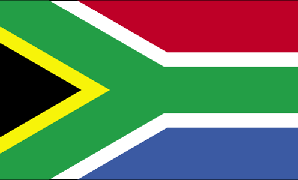
|
Afrique du Sud
Loi sur la Commission pour la
promotion et la protection |

|
Afrique du Sud
Loi sur la Commission pour la
promotion et la protection |
![]()
|
Commission for the Promotion and Protection of the Rights of Cultural, Religious and Linguistic Communities Act, 2002 Section 3.
Section 4.
Section 5
1) The Commission may do all that is necessary or expedient to
achieve its objects referred to in section 4, including to - (b) conduct programmes to promote respect for and further the protection of the rights of cultural, religious and linguistic communities; (c) assist in the development of strategies that facilitate the full and active participation of cultural, religious and linguistic communities in nation building in South Africa; (d) promote awareness among the youth of South Africa of the diversity of cultural, religious and linguistic communities and their rights; (e) monitor, investigate and research any issue concerning the rights of cultural, religious and linguistic communities; (f) educate, lobby, advise and report on any issue concerning the rights of cultural, religious and linguistic communities; (g) facilitate the resolution of friction between and within cultural, religious and linguistic communities or between any such community and an organ of state where the cultural, religious or linguistic rights of a community are affected; (h) receive and deal with requests related to the rights of cultural, religious and linguistic communities; (i) make recommendations to the appropriate organ of state regarding legislation that impacts, or may impact, on the rights of cultural, religious and linguistic communities; (j) establish and maintain databases of cultural, religious and linguistic community organisations and institutions and experts on these communities; and (k) bring any relevant matter to the attention of the appropriate authority or organ of state, and, where appropriate, make recommendations to such authority or organ of state in dealing with such a matter.
Section 36. 2) The Commission may recommend to a community, which is not organised, to initiate and establish a community council at a provincial or national level if the establishment of such a council would be conducive to -
Section 37 Section 38 Aims of community councils The aims of a community council recognised in terms of section 37 should be to-
Section 42 |
Loi sur la Commission pour la promotion et la protection des droits des communautés culturelles, religieuses et linguistiques (2002)
Article
3
Article
4
Article
5
1) La Commission peut faire tout ce qui est nécessaire ou utile pour
atteindre
ses objectifs mentionnés à l'article 4, y compris les suivants: (b) produire des programmes visant à promouvoir le respect et la protection accrue des droits des communautés culturelles, religieuses et linguistiques; (c) contribuer à l'élaboration des stratégies qui facilitent la participation pleine et active des communautés culturelles, religieuses et linguistiques dans l'édification de la Nation en Afrique du Sud; (d) promouvoir la sensibilisation auprès des jeunes d'Afrique du Sud au sujet de la diversité des communautés culturelles, religieuses et linguistiques et de leurs droits; (e) surveiller, enquêter et enquêter sur toute question concernant les droits des communautés culturelles, religieuses et linguistiques; (f) éduquer, influencer, conseiller et faire rapport sur les questions concernant les droits des communautés culturelles, religieuses et linguistiques; (g) faciliter la résolution des conflits entre les communautés culturelles, religieuses et linguistiques, ou entre une communauté et un organisme de l'État où les droits culturels, religieux ou linguistiques d'une communauté sont concernés; (h) recevoir et traiter les demandes liées aux droits des communautés culturelles, religieuses et linguistiques; (i) faire des recommandations à l'organisme compétent de l'État en ce qui concerne l'impact de la législation qu'il pourrait y avoir ou ses incidences sur les droits des communautés culturelles, religieuses et linguistiques; (j) établir et maintenir des bases de données auprès des organismes des communautés culturelles, religieuses et linguistiques ainsi qu'auprès des institutions et des experts sur ces communautés; et (k) apporter des éléments utiles à l'attention des autorités compétentes ou des organismes de l'État et, le cas échéant, faire des recommandations à ces autorités ou ces organismes à propos de ces questions.
Article
36 2) La Commission peut recommander à une communauté, qui n'est pas organisée, de fonder et de mettre en place un conseil communautaire au niveau provincial ou national, si la mise en place d'un tel conseil semble favorable :
Article 37 Article 38 Buts des conseils communautaires Les buts d'un conseil communautaire reconnu selon les dispositions de l'article 37 doivent être les suivants:
Article 42 Entrée en vigueur et titre abrégé La présente loi est appelée Loi sur la Commission pour la promotion et la protection des droits des communautés culturelles, religieuses et linguistiques de 2002 et elle entre en vigueur à une date fixée par le président au moyen d'une proclamation dans le Journal provincial. |